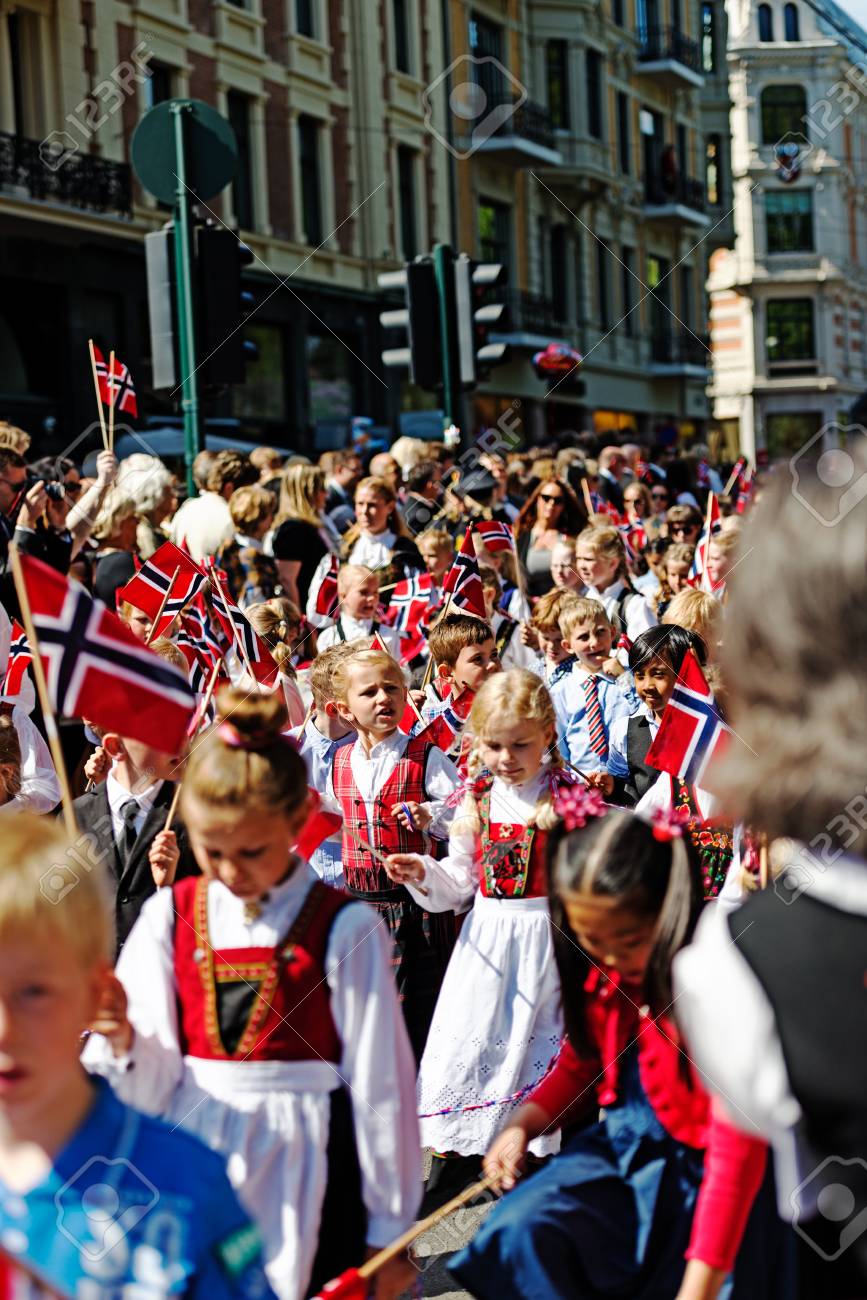MAY 17, 2021 – If you’re Norwegian, you know what today—“Syttende Mai,” or “Seventeenth May”—is all about. If you’re Swedish, there’s some spillover effect, meaning you’re aware that it’s the one day on which Norwegians wave their flag and shout, “Hurra!” May 17 is Norway’s Constitution Day or National Day and also commemorates Norway’s independence—kinda, sorta—from . . . Sweden.
A thimble’s dose of history provides a modicum of context . . .
In 1813 Denmark held sway over Norway and was an ally of Napoleon. Sweden—whose king was French and related by marriage to Napoleon—was allied with Russia against Napoleon. (I’ll give you 10 seconds to wrap your mind around that.) In December of that year, Sweden and its allies pommeled the Danes. For his able contributions to the effort, Sweden’s French king was awarded Norway. Norwegians didn’t like the idea of being treated as pawns, but since they’d been defeated militarily, they pursued Plan B: they adopted a constitution—on May 17, 1814. The Swedes, being fairly civilized—all things considered—said, “Okay, sure, fine, you can have your constitution and practice independence, but we’re gonna have a united crown that says “Sverige” (“Sweden”) and foreign policy dictated by Stockholm.”
For a time, though, the Norwegians weren’t allowed to celebrate “Syttende Mai,” which, of course, guaranteed that they would do exactly that. The king later had to relent, thanks in large part to the influence of a poet—Henrik Wergeland—a quintessential Scandinavian rabble-rouser. Being the first to give a public address on May 17, hailing the constitution, Wergeland is assigned credit for getting the parade rolling. But in keeping with Wergeland’s influence, the actual parades featured not military corps but students—first boys, then 35 years later, girls too.
By 1905, Sweden announced it was done with the union of the two countries. Norway could go its own way, so it did—on May 17. Since then, except while under German occupation in WW II, Syttende Mai has been a day of festivities across Norway. A central element remains children, who, in the truly patriotic manner of any country, represent the power of hope.
I’ve never been in Norway for Syttende Mai, but in Minnesota and Wisconsin, home of many people of Norwegian descent, the day brings out plenty of “red, white, and blue”—without stars but with stripes forming a horizontal cross—the legacy of history going back to . . . another day.
Meanwhile, back to Wergeland—and the Norwegian constitution. When the latter was adopted, it contained a clause explicitly forbidding Jews from entering the country. Thanks to the relentless efforts of that poet-rabble rouser in concert with others, the clause was later removed. In yet another of history’s ironies, Wergeland’s father had been the author of the offensive provision.
To my California cousins, who in addition to being of Swedish and Norwegian descent, and to my wife’s Norwegian cousins, who are . . . Norwegian and still celebrating in bunad (traditional costumes)) as I write this, I say . . . Hurra!
(Remember to subscribe to this blog and receive notifications of new posts by email.)
© 2021 by Eric Nilsson
